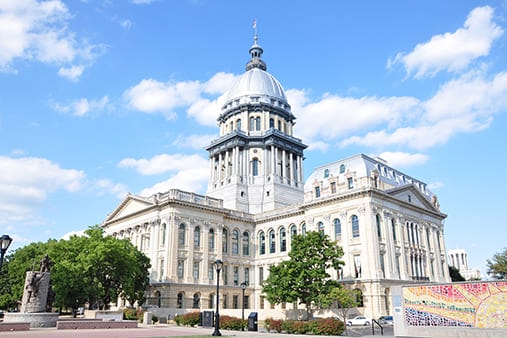ハイライト
On June 6, the U.S. Supreme Court agreed to consider the following question:
Is the federal Quiet Title Act’s statute of limitations a jurisdictional requirement or a claim-processing rule?
On June 6, the U.S. Supreme Court slotted in one additional case for its next term, bringing the current total to 19. The case, Wilkins v. United States, is a quiet title action brought by Montana landowners against the federal government and involves a topic to which the Court has returned several times in recent years: Which time bars are jurisdictional rules and which are non-jurisdictional claim-processing rules?
The case will be significant for anyone litigating real property disputes against the federal government, but the Court’s decision could also have broader significance, including by providing clarification on such big-picture issues as sovereign immunity and stare decisis.
The federal Quiet Title Act authorizes suits against the federal government “to adjudicate a disputed title to real property in which the United States claims an interest” but provides that such a suit “shall be barred unless it is commenced within twelve years of … the date the plaintiff or his predecessor in interest knew or should have known of the claim of the United States.” The dispute in Wilkins concerns whether this time bar is jurisdictional.
If it is, several important consequences follow, including that courts must decide whether the rule applies even if the parties do not raise the issue, that the rule cannot be waived or forfeited, and that the rule is not subject to equitable tolling – and further, in the U.S. Court of Appeals for the Ninth Circuit at least, that the defendant invoking the rule in a motion to dismiss would receive procedural advantages that otherwise would not apply.
The landowners in Wilkins argue that the time bar is non-jurisdictional, citing a string of recent decisions where the Supreme Court has characterized a variety of time bars as non-jurisdictional claim-processing rules. As the Court explained several weeks ago in its most recent decision on this point, courts will treat a time bar “as jurisdictional only if Congress clearly states that it is.”
In this case, however, the Ninth Circuit held that the Quiet Title Act’s time bar is jurisdictional, relying on the Supreme Court’s statement in a 1983 case, Block v. North Dakota ex rel. Board of University & School Lands, that where a suit is barred by the Quiet Title Act’s time bar, “the courts below had no jurisdiction to inquire into the merits.” In doing so, the Ninth Circuit panel cited the Supreme Court’s 2015 decision in United States v. Wong: Although that decision applied the Court’s current approach to statutory deadlines to hold that the Federal Tort Claims Act’s time bar is non-jurisdictional, the decision reiterated that stare decisis concerns justified keeping the Court’s “century-old view” that the nearly identical statute of limitations in the Tucker Act (which governs contract suits against the United States) is jurisdictional.
Notably, the Ninth Circuit’s decision directly disagreed with an earlier decision by the U.S. Court of Appeals for the Seventh Circuit that held that the Quiet Title Act’s time bar is a non-jurisdictional claim-processing rule. That decision, authored by Judge Frank Easterbrook, acknowledged the Supreme Court’s statement in Block, but concluded that it is “yet another example of the tendency … to employ the word [jurisdiction] loosely,” explaining that “not every reference to ‘jurisdiction’ in the Supreme Court’s large corpus of decisions means ‘subject-matter jurisdiction’ in the contemporary sense.” Judge Easterbrook rejected the federal government’s argument that the time bar must be jurisdictional because it is a condition to the federal government’s waiver of sovereign immunity; he concluded that, since the Supreme Court has held that time limits in many statutes authorizing suits against the federal government are subject to equitable tolling and estoppel, “Sovereign immunity is not a jurisdictional doctrine.”
With Wilkins, the Supreme Court has now agreed to resolve this circuit split, and its answer could have consequences far beyond the Quiet Title Act. Indeed, how the Court answers the question could be even more important than the answer itself.
To obtain more information, please contact the Barnes & Thornburg attorney with whom you work or Kian Hudson at 317-229-3111 or kian.hudson@btlaw.com.
© 2022 Barnes & Thornburg LLP. All Rights Reserved. This page, and all information on it, is proprietary and the property of Barnes & Thornburg LLP. It may not be reproduced, in any form, without the express written consent of Barnes & Thornburg LLP.
This Barnes & Thornburg LLP publication should not be construed as legal advice or legal opinion on any specific facts or circumstances. The contents are intended for general informational purposes only, and you are urged to consult your own lawyer on any specific legal questions you may have concerning your situation.












